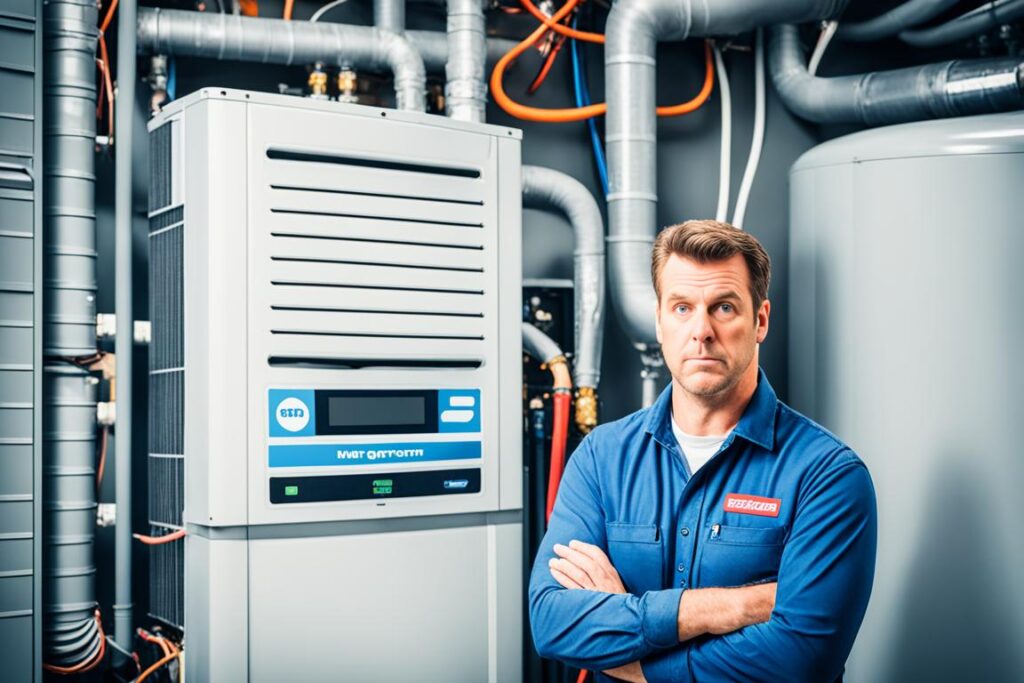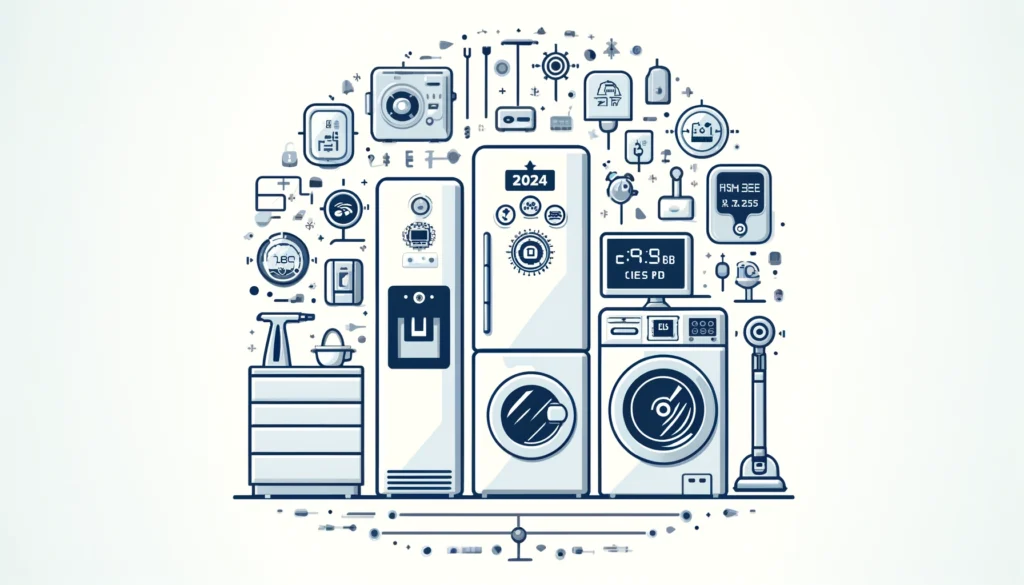When it comes to home heating and air conditioning systems, choosing the right HVAC system is crucial for optimal comfort and energy efficiency. With so many options available, it can be overwhelming to make the right decision. This HVAC buying guide aims to simplify the process by providing key factors to consider when selecting an HVAC system for your home.
Key Takeaways:
- Understanding the different types of HVAC systems can help you make an informed buying choice.
- Consider factors such as home comfort, efficiency, capacity, programmable thermostat compatibility, maintenance requirements, sound, and price.
- Comparing quotes from top-rated HVAC contractors can help you find the right system for your home.
- Choose an energy-efficient HVAC system to reduce energy consumption and save on utility bills.
- Proper installation, regular maintenance, and timely repairs are essential for the longevity and optimal performance of your HVAC system.
Types of HVAC Systems
When it comes to choosing the right HVAC system for your home, understanding the different types available is crucial. There are four main types of HVAC systems that you can consider: split systems, hybrid systems, ductless systems, and packaged heating and air systems. Each type has its own unique features and advantages, allowing you to find the perfect fit for your home and budget.
1. Split Systems
Split systems are the most common type of HVAC system used in residential properties. These systems consist of two main units or systems, one for cooling and one for heating. The outdoor unit houses the condenser and compressor, while the indoor unit contains the evaporator coil and blower. Split systems offer powerful cooling and heating capabilities, and they can be customized to fit the size and layout of your home.
2. Hybrid Systems
Hybrid systems are an advanced version of split systems that offer improved energy efficiency. These systems incorporate a hybrid electric heater that combines the benefits of an electric heat pump with a traditional gas furnace. By automatically switching between electric and gas heating, hybrid systems optimize energy usage and reduce utility costs.
3. Ductless Systems
Ductless systems, also known as mini-split systems, are perfect for homes where conventional duct systems cannot be installed. These systems consist of an outdoor unit for cooling and a heat pump for both cooling and heating. Ductless systems are compact, easy to install, and provide efficient temperature control in individual rooms or zones of your home.
4. Packaged Systems
Packaged systems combine heating and cooling functions into one outdoor unit. These systems are typically installed outdoors, making them an excellent choice for homes with limited indoor space. Packaged systems are versatile and can utilize different fuel sources, such as gas or electricity, depending on the specific requirements of your home.
By understanding the different types of HVAC systems available, you can make an informed decision and choose the one that best suits your home and budget. Whether you opt for the flexibility of split systems, the energy efficiency of hybrid systems, the versatility of ductless systems, or the compact design of packaged systems, there is a residential HVAC system that will meet your heating and cooling needs.
Factors to Consider When Choosing an HVAC System
When selecting an HVAC system for your home, it’s important to take various factors into consideration. First and foremost, prioritize your home comfort. Think about your temperature control preferences and the quality of the air you want to breathe. To enhance indoor air quality, look for features like UV lights that can effectively improve air quality within your home.
Efficiency is another crucial factor. Take note of ratings such as the Seasonal Energy Efficiency Ratio (SEER) and aim for a system with a rating of at least 15. This ensures energy-efficient operation and can help reduce your utility bills. Additionally, consider the capacity of the HVAC system, which is measured in BTUs (British Thermal Units). Opt for a system that can effectively heat and cool the specific space in your home.
For enhanced convenience and energy savings, compatibility with a programmable thermostat is key. This allows you to have better control over your heating and cooling system, optimizing it based on your specific needs. When considering maintenance requirements, choose a system that is low-maintenance and cost-effective. This can save you time and money in the long run.
Lastly, take into account sound levels. Noisy HVAC systems can be disruptive, so it’s important to find one that operates quietly. Lastly, consider your budget. While price is a significant factor, don’t overlook other important factors such as energy efficiency and durability. By carefully evaluating these factors, you can select the ideal HVAC system that provides optimal home comfort, efficiency, and long-term value.
Store providing HVAC solutions – acdirect, HVACWarehouse, HVACDirect, Hear & Cool, HVAC USA



